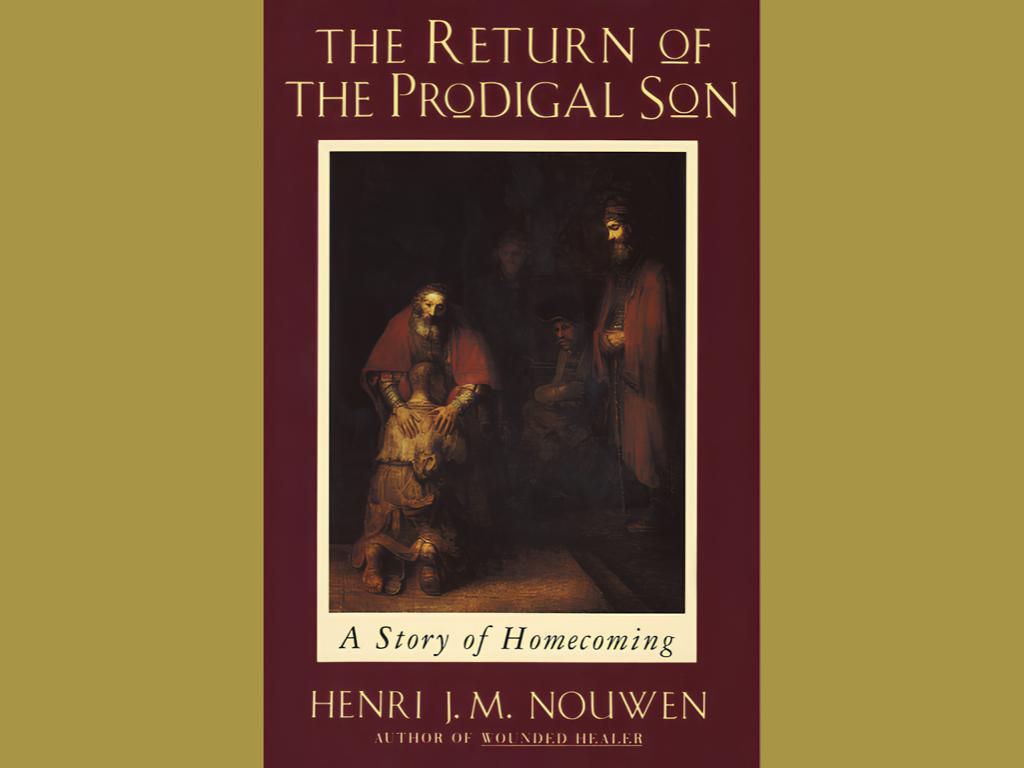I’m so thankful to have attended the 8-day silent retreat again at Loyola House at the Jesuit Centre in Guelph, ON, last month — one year after my last visit. Our spiritual director reminded us not to get ahead of grace — let it happen; let God happen. So yes, even today, I’m still learning the unforced rhythms of grace by walking and working with Jesus, watching how He does it (Matthew 11:28-30). Would you like to read about my retreat experience from last year?
God was so gracious to meet me where I was. There are many things I would love to share with my brothers and sisters — so much that it would take multiple “Pastor’s Corner” posts to cover it all! If you’re interested in hearing more, feel free to let me know. I’d love to chat over a 🍵/☕. 😊
I happened to bring with me the book The Return of the Prodigal Son by Henri Nouwen, which is based on Rembrandt’s painting of Luke 15:11-32. I highly recommend this book to anyone seeking to contemplate the love of God in a deep and profound way.
One of the things that moved me most was Nouwen’s depiction of Jesus as the younger son. Paraphrasing some of Nouwen’s writing:
The younger son's decision to leave is more than just a simple act of independence — it is a deep rejection of his home, family, and the traditions that shaped him. When Luke writes that he “left for a distant country,” it signifies more than just a desire to explore the world. It represents a complete break from the way of life, values, and beliefs passed down to him. His departure is not just disrespectful but a betrayal of his family’s and community’s most cherished principles. The “distant country” symbolizes a place where everything sacred at home is cast aside. (P.36)
On the other hand, Jesus himself lived out the story of the prodigal son for our sake. He left His Father’s house, came to a “distant and foreign land,” gave everything he had …
“He had equal status with God but didn’t think so much of himself that he had to cling to the advantages of that status no matter what. Not at all. When the time came, he set aside the privileges of deity and took on the status of a slave, became human! Having become human, he stayed human. It was an incredibly humbling process. He didn’t claim special privileges. Instead, he lived a selfless, obedient life and then died a selfless, obedient death — and the worst kind of death at that — a crucifixion.” (Philippians 2:6-8 MSG)
… and returned to the Father through the cross. But unlike the rebellious son, He was the obedient Son, sent to bring back God’s lost children. The very journey He described in the parable was one He personally walked, even as He was criticized for welcoming sinners. Jesus, the Word of God, became human — growing in Mary’s womb for nine months and entering the world as a small child, worshipped by both nearby shepherds and distant wise men. The eternal Son became a child so that we, too, might become like a child again and enter the Father’s Kingdom with Him. (P.55-56)
Viewing Jesus as the prodigal son is a deeper perspective than the usual interpretation of the parable, yet it reveals a profound truth. Our identity as a child of God is connected to Jesus’ sonship, that our journey back to God is tied to His, and that His home is also our home. There is no path to God apart from the one Jesus walked. (P.56)
God’s saying, “You are my beloved child, on you my favor rests,” stayed only in my head until I read about Jesus being depicted as the younger son. My eyes were filled with tears, and my heart was deeply touched as I contemplated our Lord Jesus as the “prodigal Son,” not because of rebellion, but in obedience. He returned to His Father, to the Heavenly Home, not just by Himself, but bringing with Him those — you and me — who would submit to His salvation and Lordship. Because of Jesus, I've been adopted as a child of God, but I must also claim my “child-ship” — my identity as a child of God — in order to live freely as a child of God. God’s saying, “You are my beloved child, on you my favor rests,” has moved from my head to my heart, and I truly know that I am His beloved.
At the beginning of the retreat, I thought it would be a journey of renewing my love for Jesus, since everything about my being should start with His love, and from His love flows to others. But by the end of the retreat, I realized that I was, in fact, renewed in the graciously redeeming love of Jesus. Once again, Love moved first.
You didn't wait for me to find my way to You
I couldn't cross that distance even if I wanted to
You came running after me
When anybody else would've turned and left me at my worst
Love moved first


